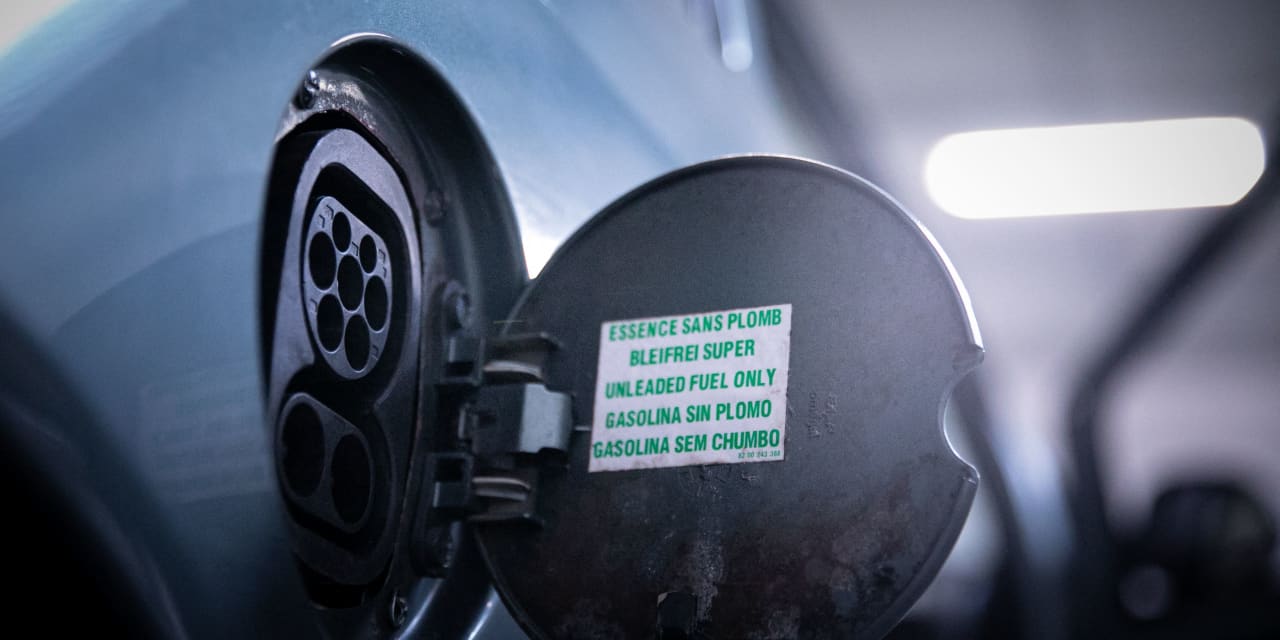There’s a lot of worry about electric vehicles these days. Falling prices—and profits—have Wall Street nervous as a cat.
The demise of the battery power tech is greatly exaggerated, though. The real problem is Economics 101: supply and demand.
EV demand in the U.S. is rising, but there are just too many autos targeting the same sliver of the market.
The silver lining is that auto makers are reducing their prices for EVs. And tax-credit changes in the coming year will make them a veritable steal, provided a buyer meets the qualifications.
Over the weekend, start-up
Lucid
(ticker: LCID) introduced a $7,500 incentive on its all-wheel drive Lucid Air Pure sedan.
Lucid has cut prices before so the move, frankly, wasn’t unsurprising. All EV prices are down—a lot—this year. EV pioneer
Tesla
(TSLA), for example, was also the first to slash prices to offset the drag on demand by rising interest rates and declining vehicle affordability.
And lower prices have helped. U.S. sales of battery electric vehicles, or BEV, were up roughly 50% in 2023’s first three quarters. BEVs now account for about 8% of all new car sales.
In September, a new EV in the U.S. cost just under $51,000 on average—about $3,000 more than the price of the average car, according to automotive data provider Kelly Blue Book.
In September a year ago, the average transaction price was more than $65,000, or about $17,000 more than the average price of all vehicles.
The dramatic price declines have taken a toll.
Tesla’s profit margins fell roughly 10 percentage points year over year in the third quarter. In October, the company reported a disappointing opening profit margin of less than 8%.
Falling prices and weaker-than-expected EV sales at
Ford Motor
(F) and
General Motors
(GM) have those traditional auto makers slowing their EV spending and shifting sales and profit goals into the future.
For the EV industry, the “current consensus view” is that slowing adoption and price cuts are a major problem, wrote Citi analyst Itay Michaeli in a Monday report.
EV sentiment has “never been worse,” he added, pointing out that it is impacting the stock of auto makers, suppliers, and EV-charging companies.
Through early trading Monday, Tesla stock was down 11% over the past three months. Lucid was down 32%. Ford and GM were off 19% and 20%, respectively. Auto supplier
Aptiv
(APTV) was down about 29% and EV-charging company
ChargePoint
(CHPT) was off 63%. The
S&P 500
and
Nasdaq Composite
were both down about 3%.
There are a few holes in the bear case for EVs, wrote Michaeli: “Structurally, the U.S. is set up very well for rapid EV adoption thanks to a high vehicle density starting point.”
American households have a couple of cars. It makes sense for at least one of them to be electric. They are cheaper to operate and maintain. And they can be charged at home.
Michaeli also pointed out there is more EV-charging infrastructure coming. The decision by many auto makers to adopt the Tesla charging plug—Elon Musk’s company has the largest network of fast-charging stations nationwide—will help all EV drivers feel like they know where to charge up in a pinch.
Something else to keep in mind: EVs are about to get even cheaper, relatively speaking. Starting in January, the $7,500 federal tax credit can be taken off at the dealership instead of buyers when they file their taxes.
The amounts and qualifications don’t really change, but it makes financing the car a little easier and makes the whole process of comparing prices simpler.
Michaeli believes more EVs are needed, not less. The U.S. industry needs to manufacture the right ones, though—fewer small crossovers and many more attractive, affordable sedans, light trucks, and larger SUVs. With the right mix, Michaeli sees a case for 15% EV penetration of new car sales by 2025.
His is a bullish take for the industry. Michaeli recommends buying Aptiv, Ford, and GM stocks. He rates shares of Lucid, Tesla, and ChargePoint shares Hold. He isn’t ready to go all in on everything EV yet, but things just aren’t as bad as they seem.
Write to Al Root at [email protected]
Read the full article here













Leave a Reply